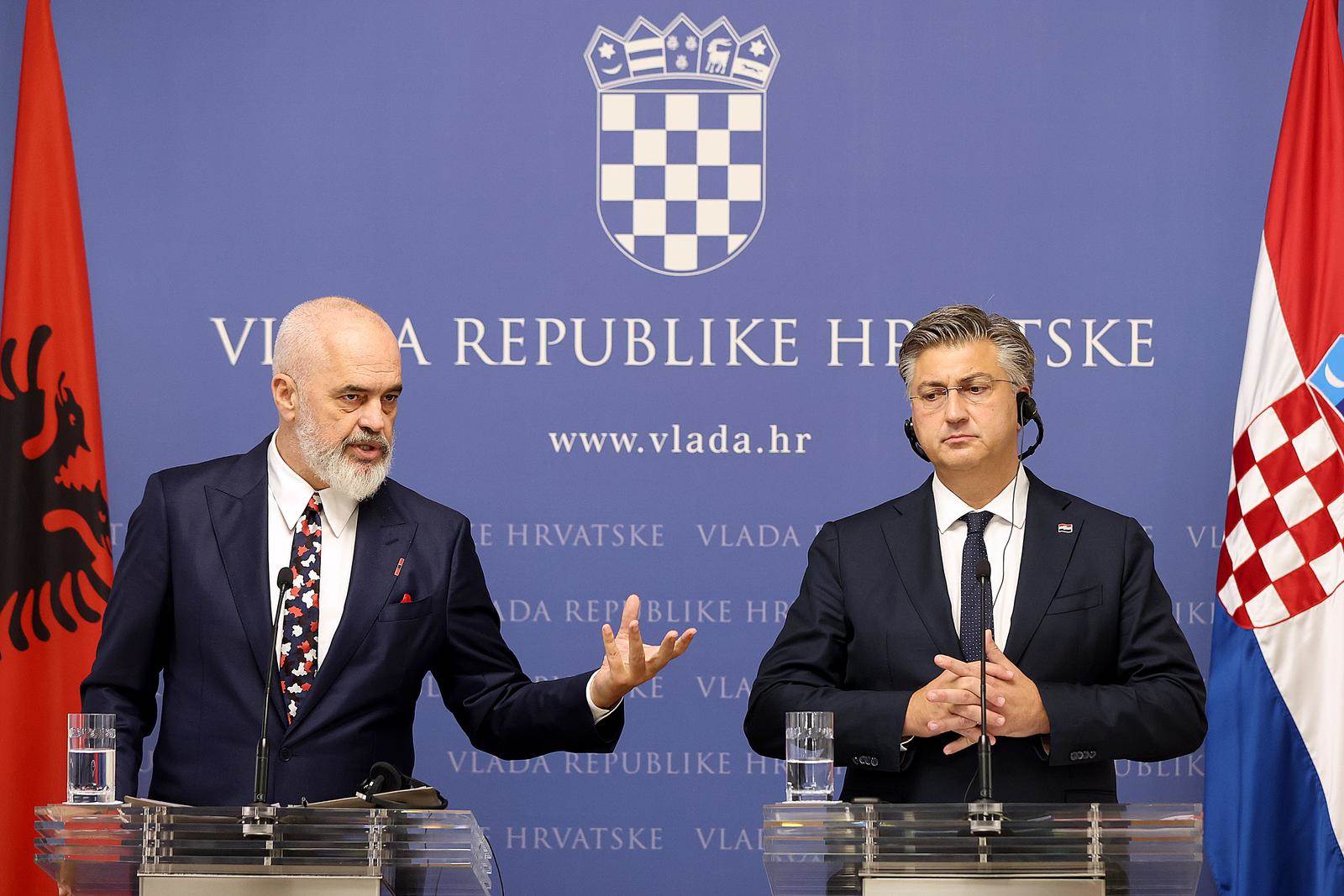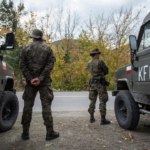Albanian Prime Minister Edi Rama paid an official visit to Croatia at the invitation of Prime Minister Andrej Plenković. The Albanian head of government said that the aggression of paramilitary formations in the north of Kosovo is as worrying as the reaction from Belgrade. “We have a crime, the killing of a policeman, and we have the heroization of those who committed it,” Edi Rama said, stressing that this should not be acceptable to Europe, which preaches opposing values. Andrej Plenković, for his part, emphasized that these steps “cannot remain unanswered” and that Belgrade’s decision on a day of mourning “almost implies identification with what happened.” He emphasized that there will be an investigation to fully establish what happened, after which the EU’s Special Representative for the dialogue between Pristina and Belgrade, Myroslav Lajcak, will put forward proposals for response measures on the part of the European Union. Meanwhile, the European Commission can also take measures on its own, without the consent of all member states, as was done in relation to Kosovo a few months ago. Due to the EU’s failure to comply with Pristina’s demands, the EC took measures to suspend operations of the working bodies for the Stabilization and Association Agreement, as well as withdraw invitations to high-level meetings and suspend Kosovo’s participation in its €7.5 billion program. The prime minister of Croatia emphasized he is sure that the measures will be taken, and Edi Rama called on them to be applied “without wasting time”, since Belgrade’s decision on the day of mourning leaves no room for other interpretations.
Regarding cooperation between the two countries in the field of European integration, “Croatia is an inspiration for Albania on its way to the European Union,” said Prime Minister Edi Rama, thanking Zagreb for helping in the process, citing Croatia “as an example of success” and a country whose achievements in “only one decade to join the EU” is an incentive for Tirana. Rama said that Albania had benefited a lot from Zagreb’s direct assistance, adding that Croatia has built a large base of experience in the EU accession process. Albania also wants to learn from Croatia in the field of tourism, strengthening cyber security, and providing state support in the employment process. Tirana considers Croatia as one of its most important partners. During Rama’s visit to Croatia, the two countries signed two agreements in the fields of health care and social policy, and Prime Minister Plenković emphasized that they actually became the implementation of the strategic partnership policy that Albania and Croatia established seven years ago.
Prime Minister Andrej Plenković recalled that the trade between the two countries reached EUR 170 million but both neighboring countries in a broader sense are very interested in its further development. The two PMs also discussed cooperation in the energy sector and infrastructure projects with an emphasis on the Adriatic-Ionian Corridor. Prime Minister Plenkovic said that Croatia has decided to finance the construction of the corridor through its territory, while Tirana is in the process of signing a contract for the main segment of the corridor through Albania. In addition, agreement with Podgorica on the route of its passage through the territory of Montenegro is being considered.
Plenković emphasized once again that Croatia remains a strong and consistent supporter of Albania’s path to the EU. “This is the time when Putin’s aggression against Ukraine accelerated the enlargement process,” therefore the EU looks at it in a completely different way, the Croatian Prime Minister concluded. Rama said that the two countries, as members of NATO, have an absolutely shared attitude regarding the war in Ukraine and condemnation of Russian aggression. Plenković will visit Tirana in mid-October, where he will take part in the summit of the Berlin process.
During the talks, Croatian President Zoran Milanovic told Albanian Prime Minister Edi Rama that he would continue to advocate for “the earliest possible entry of Albania into the European Union,” a country he says has lone been a “reliable NATO ally.” Milanovic and Rama assessed the relations between the two countries as “extremely friendly and good”. The topic of talks was the security and political situation in Southeast Europe, during which it was emphasized that maintaining peace and stability in the region is of great interest to both countries.
The outcome of the negotiations between the Croatian and Albanian prime ministers showed that they have identical views on important issues of bilateral relations and international life. Plenković and Rama condemned the killing of a Kosovo police officer by a group of armed Serbs. They demand that Belgrade be sanctioned in view of the actual support of an act of terrorism where weapons were involved that could have been delivered from Serbia. According to their belief, in case if the fact of preparation of an armed provocation in the north of Kosovo in Serbia is confirmed, the European Union should take effective measures to influence Belgrade. In addition, the two heads of government discussed ways to accelerate Albania’s accession to the EU and to provide this process with full support from Zagreb. Plenković and Rama expressed support for Ukraine in its fight against Russian aggression. The two countries have already provided practical assistance to Kyiv in this struggle. Zagreb and Tirana do not forget to pay special attention to the implementation of important bilateral economic projects and regional energy initiatives to meet the needs of countries in terms of hydrocarbons. In the Western Balkans, these two countries are seen by Brussels as the most stable ones. The prime minister of Albania also has close personal contacts with the president of Croatia, Zoran Milanovic, who, before being elected as head of state, served as an adviser to Edi Rama in Tirana in 2017-2019.



